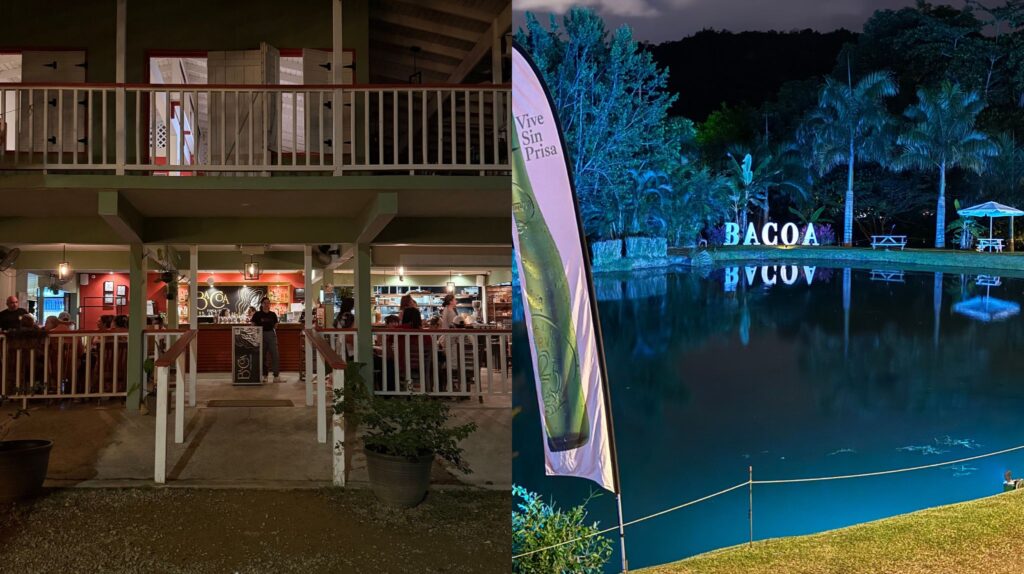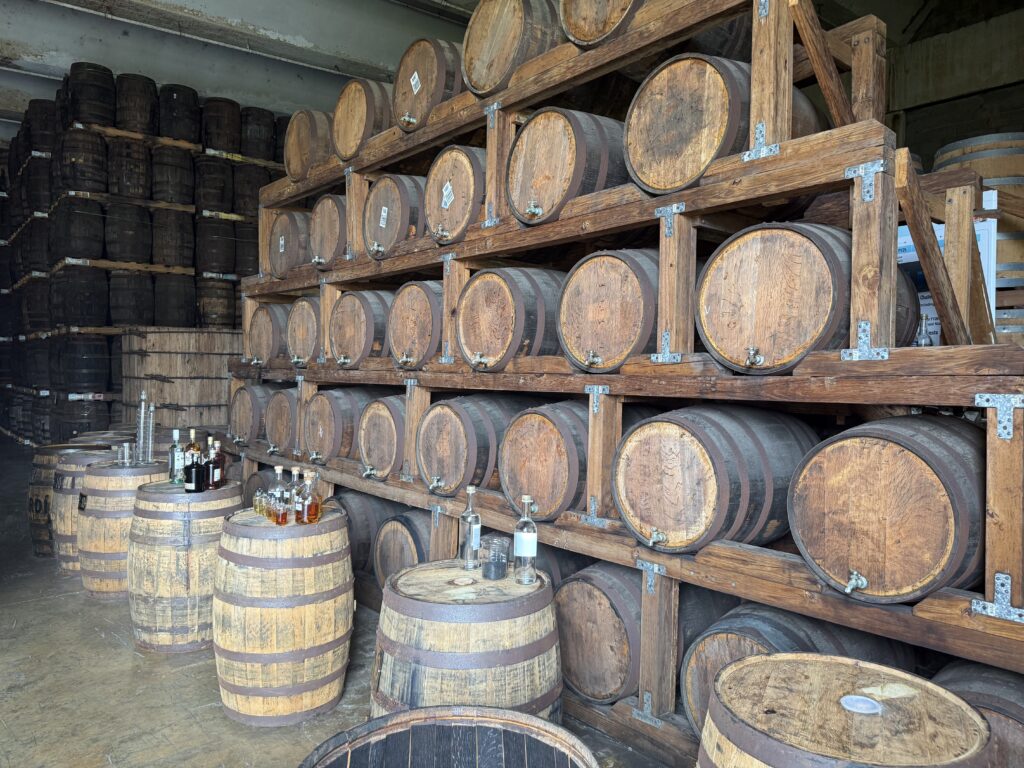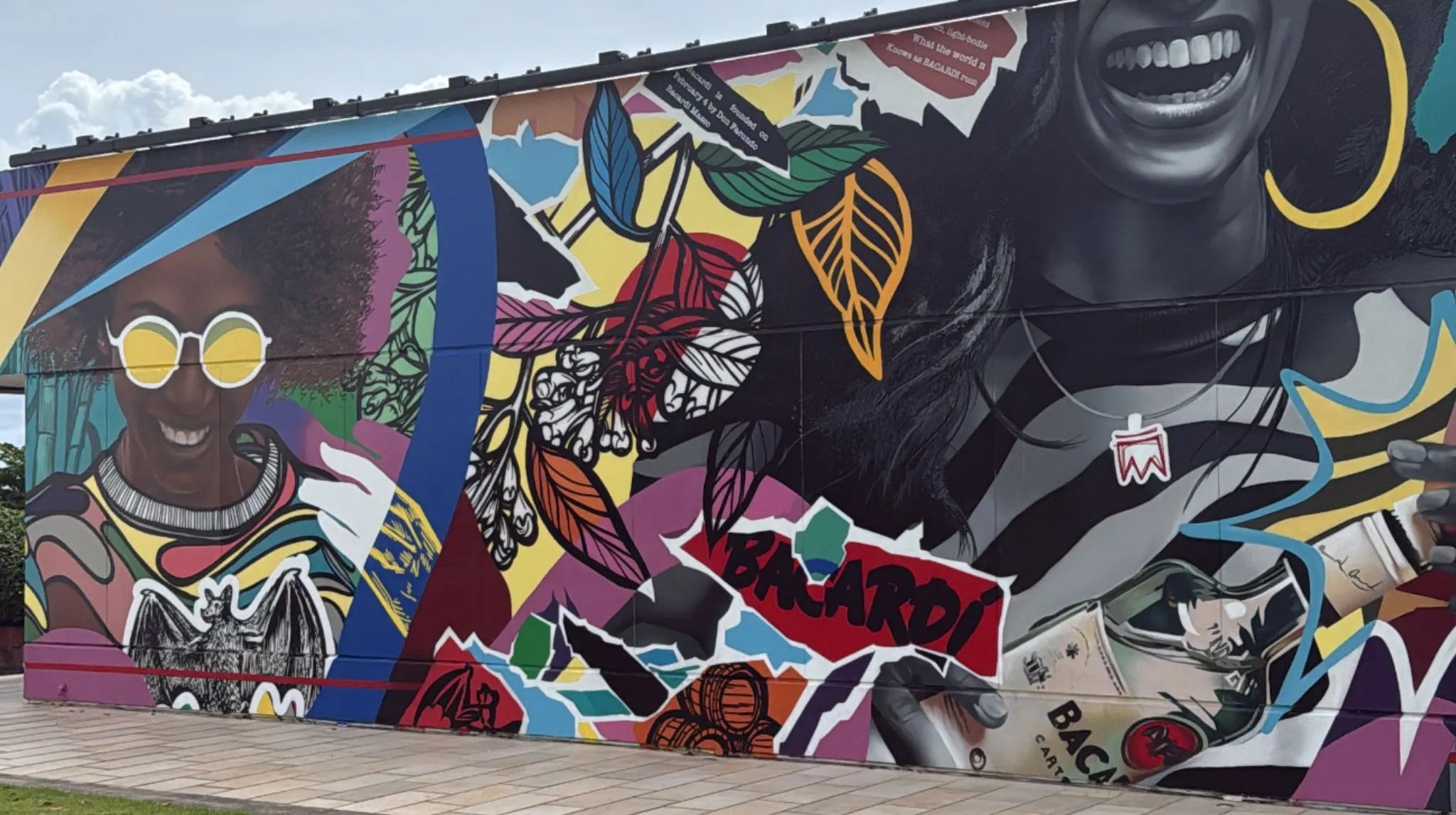In Puerto Rico, sustainability isn’t just about going green. It’s also about resilience, food security, and honoring the island’s roots. Across the archipelago, farmers, chefs, distillers and communities are rethinking how land, water and culture intersect. And in that mix, places like Bacoa in Juncos and Casa Bacardí in Cataño are turning everyday experiences into opportunities to give back to the land and the people who live on it.
Rooted in the land at Bacoa
At the farm-to-table Bacoa Finca + Fogón, sustainability starts on the ground. The countryside restaurant sources many of its ingredients from its own farm and neighboring growers. What ends up on the table is shaped by what’s in season, which cuts down on food waste and supports biodiversity.
Cooking here is done on a fogón, a traditional wood-fired stove that also cuts back on fossil fuels in a way that lets the establishment keep cultural traditions while reducing energy use at the same time.

This doesn’t just keep the menu fresh, it supports the local community. When you eat at Bacoa, you’re helping to sustain Puerto Rican farmers, fishers and artisans.
Making spirits and sustainability work at Casa Bacardí
In Cataño, Casa Bacardí has continued to make its operations lighter on the environment. The distillery has made headlines for cutting its greenhouse gas emissions by half, thanks in part to turning wastewater into biogas and recycling heat during production.
Christian Frontanes, Brand Home Ambassador at Casa Bacardí, shared how the distillery has been ahead of the sustainability curve for decades, thanks to an anaerobic filter system that’s been in place for over 40 years. The system breaks down waste using bacteria that not only purifies the water but also creates biogas in the process. That biogas has long been used as a fuel source at the facility, helping generate steam and power operations.

Frontanes explained that with the addition of a combined heat and power (CHP) system, which began operating 18 months ago, the distillery now produces all of its electricity in-house, using a mix of about 60% biogas and 40% propane. The system also provides 100% of the steam needed for production. This shift has cut the facility’s emissions by roughly 20%, while also lowering energy costs. He emphasized that the company sees increasing its use of biogas as a key goal because of its environmental benefits.
They’ve also made moves to reduce plastic use by ditching single-use pourers and recycling glass into concrete blocks for community building. Around the property, pollinator gardens now support bees, bats and butterflies. These small steps add up to meaningful impact for the local ecosystem.
Casa Bacardí has also leaned into recovery and rebuilding work, funding projects after hurricanes and investing in long-term support for Puerto Rican communities. These efforts show that sustainability here is as much about people as it is about the planet.
Across Puerto Rico, sustainable practices are becoming part of daily life, from the way meals are prepared to how industries manage waste and energy. Whether it’s a restaurant like Bacoa sourcing local crops or Casa Bacardí supporting local communities, the efforts are shaping a more sustainable island.
The work is ongoing. But each decision to reuse, replant or rethink tradition is a step toward building something more durable for not just for the environment, but also for everyone who calls Puerto Rico home.
